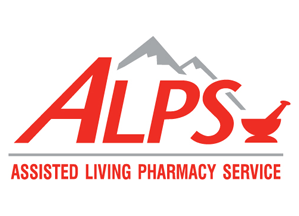How To Set Up an On-site Vaccine Clinic
Important Notice
We are currently vaccinating our LTC facility partners’ staff and residents. If you’re an individual seeking a COVID-19 vaccine, please visit the CDC’s VaccineFinder tool.
If you are not a current LTC facility working with ALPS, please email [email protected] to express your interest in working with Assisted Living Pharmacy Service.”
About Our Vaccination Program
How to make an appointment for a vaccine clinic at your facility?
- Please email your request to [email protected]
- Please use the subject line: “VACCINE CLINIC REQUEST”
- Please include in your email facility name and number of staff and residents you are requesting the vaccine for
- A team member will contact you to arrange an appointment as soon as there is a vaccine supply available for you
What do you and your residents need to know following the vaccine
COVID-19 Vaccination Record Cards
COVID-19 Vaccination Record Cards will be given out following the initial dose, please keep them in a safe place and have them available upon receipt of the second dose
V-Safe
The CDC has created a smartphone-based tool to monitor side effects and provide health check-ins following vaccination.
Please find more information about the app here: https://www.cdc.gov/coronavirus/2019-ncov/vaccines/safety/vsafe.html
V-Safe
The CDC has created a smartphone-based tool to monitor side effects and provide health check-ins following vaccination.
Please find more information about the app here
When is the 2nd dose?
- Pfizer: 3 weeks (or 21 days) after the first dose
- Moderna: 1 month (or 28 days) after the first dose
What to expect after getting the COVID-19 Vaccine?
Common Side Effects
- Pain/swelling/redness at injection site
- Sore arm
- Muscle and/or joint pain
- Fever/chills
- Fatigue
- Headache
- Nausea
Helpful Tips
- Apply clean, cool, wet washcloth over area
- Use/exercise arm
- Stay hydrated
- Can use Tylenol or Advil for pain/fever
When to call a doctor or get medical help
- If redness or tenderness at injection site increases after 24 hours
- If side effects do not seem to go away after a few days
Report Side Effects of the Vaccine online, instead of using the CDC’s app
Infection prevention and control considerations for healthcare personnel with systemic signs and symptom following COVID-19 vaccination
Infection prevention and control considerations for residents of long-term care facilities with systemic signs and symptom following COVID-19 vaccination
Signs and Symptoms with Suggested approach For Residents
Signs and Symptoms
Presence of ANY systemic signs and symptoms consistent with SARS-CoV-2 (e.g., cough, shortness of breath, rhinorrhea, sore throat, loss of taste or smell) or another infectious etiology (e.g., influenza) that are not typical for post-vaccination signs and symptoms
Suggested Approach
Pending evaluation, these residents should be placed in a single person room (if available) and cared for by healthcare personnel wearing all PPE recommended for residents with suspected or confirmed SARS-CoV-2 infection. They should not be cohorted with residents with confirmed SARS-CoV-2 infection unless they are also confirmed to have SARS-CoV-2 infection through testing.
Criteria for when Transmission-Based Precautions may be discontinued depend on the results of the evaluation.
Additional Notes
If performed, a negative SARS-CoV-2 antigen test in a resident who has signs and symptoms that are not typical for post-vaccination signs and symptoms should be confirmed by SARS-CoV-2 nucleic acid amplification test (NAAT).
Further information on testing is available here: https://www.cdc.gov/coronavirus/2019-nCoV/lab/index.html
Signs and Symptoms
Presence of ANY systemic signs and symptoms (e.g., fever, fatigue, headache, chills, myalgia, arthralgia) that are consistent with post-vaccination signs and symptoms, SARS-CoV-2 infection, or another infectious etiology (e.g., influenza). Fever in long-term care settings is defined as a single measured temperature of 100.0oF (37.8oC) or higher or repeated temperatures of 99.0oF (37.2oC).
Suggested Approach
These residents should be restricted to their current room (except for medically necessary procedures) and closely monitored until:
- Fever (if present) resolves and
- Symptoms improve
Healthcare personnel caring for these residents should, ideally, wear all PPE recommended for residents with suspected or confirmed SARS-CoV-2 infection while evaluating the cause of these symptoms. Strategies to optimize PPE supply are available here: https://www.cdc.gov/coronavirus/2019-ncov/hcp/ppe-strategy/index.html
If the resident’s symptoms resolve within 2 days, precautions can be discontinued. Fever, if present, should have resolved for at least 24 hours before discontinuing precautions.
Viral testing for SARS-CoV-2 should be considered for residents if their symptoms are not improving or persist for longer than 2 days.
Residents residing in facilities with active transmission, or who have had prolonged close contact with someone with SARS-CoV-2 infection in the prior 14 days, should be tested for SARS-CoV-2 infection.
Additional Notes
If SARS-CoV-2 antigen testing is used to evaluate a symptomatic resident, a negative antigen test in a resident who has symptoms that are limited only to those observed following COVID-19 vaccination (i.e., do not have cough, shortness of breath, rhinorrhea, sore throat, or loss of taste or smell) may not require confirmatory SARS-CoV-2 NAAT.
However, confirmatory SARS-CoV-2 NAAT testing should be conducted if there is active transmission in the facility, if the resident has had prolonged close contact with someone with SARS-CoV-2 infection in the prior 14 days, or if symptoms persist for longer than 2 days.
Additional information is available here: https://www.cdc.gov/coronavirus/2019-ncov/lab/resources/antigen-tests-guidelines.html
Frequently Asked Questions
Where can I find out more information about the vaccine?
https://www.cdc.gov/vaccines/covid-19/index.html
DHS
https://www.dhs.wisconsin.gov/covid-19/vaccine.htm
Emergency Use Authorizations by the FDA
Who is currently eligible to receive the vaccine?
ALPS is vaccinating according to guidance from the State of Wisconsin Department of Health Services.
Learn more at the WI DHS website: https://www.dhs.wisconsin.gov/covid-19/vaccine-about.htm
Where will the patients receive the vaccine?
Depending on the number of people requesting vaccination a team may come to your facility or you may be asked to come to the pharmacy.
Contact the ALPS Vaccination Team for more information via email at [email protected].
How should we prepare for an on-site vaccine clinic?
Information you will need: name, DOB, insurance information, consent from guardian if applicable
